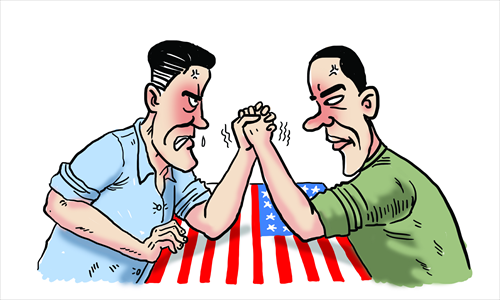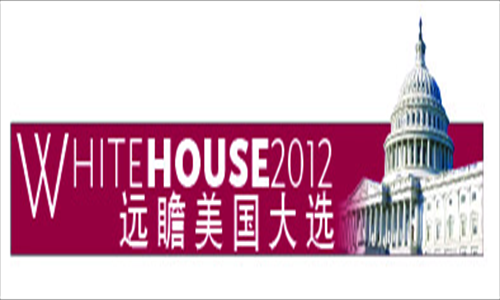Obama's uncertainty leaves race deadlocked


Recently I was at a social event in the foothills of the Shenandoah mountains near Washington, where farmers from time to time still dig up US Civil War (1861-65) bullets, and even bones.
The memories of the war over slavery are a reminder that much of the extraordinary disdain and hatred directed at US President Barack Obama has nothing to do with his stewardship and much more to do with the persistence of racism, mixed with resentment of our new meritocratic elite.
Paradoxically, it is Obama's integration in that elite and his caution about identifying with the progressive tradition adopted by patrician predecessors, the two Roosevelts and John F. Kennedy, that has stayed his hand and heart when considering what economic projects to undertake, or, at least, to espouse.
That has been a large factor in evoking popular suspicion of economic incompetence and indifference on his part. This is exceedingly untrue, but Obama listened too closely to those who spoke in the calculatedly measured prose of our technocrats rather than to those responsive to the fears and hopes of ordinary citizens.
Nothing, however, could have equaled the damage Obama inflicted upon himself by his miserable performance in the first debate. I do not know the president but would attribute it to a perfectly understandable impulse to be freed of the burdens of office.
Obama's good performances in the subsequent two debates have righted matters to a degree, but he denied himself an opportunity to consolidate what was an early lead. He also gave Romney an opportunity to exchange one persona for another overnight, and evoked doubts about his own steadfastness which are difficult to overcome.
During the abovementioned social event, I spoke with a very senior Republican, Richard Vigurie, one of the founders of the new Republicanism with its fixation on a redefinition of the US nation as a militant band of winners pushing aside unworthy losers.
Vigurie believes that we are experiencing a break in political continuity, that large numbers across all social categories will arrive at the conclusion that Obama is morally and politically exhausted, and in a markedly rapid shift, give Romney a victory with a substantial margin in the popular vote.
That would entail a collapse of the Obama vote. But Vigurie's case is not backed up by numbers.
True, where Obama has been ahead, in states like Ohio, Pennslyvania, Wisconsin, his margins are shrinking. But a latest Ohio polling report puts the candidates even.
The Obama campaign is intensifying, if possible, its already strenuous efforts to mobilize voters in categories thought responsive, including employed women, Afro-Americans and Latinos, trade unionists, public service workers, students, and the more highly educated.
The Romney camp, echoing Vigurie, claims to detect a surge in his direction, the Obama managers pronounce it at an end with their own reserves coming into the front line. It is, simply, very difficult to tell. Nothing has been lost, nothing finally gained.
The final week, with or without an "October surprise," will be tumultuous, even if a large majority of those who have voted or will actually vote have already decided.
Some 40 percent of the electorate is expected to vote by mail or in person before the official election day of November 6. Early exit polls suggest that Obama is leading among early voters thus far, a finding that does not substantiate a supposed collapse of his vote.
There is some speculation about a tie in the Electoral College, which would then give the decision to the Republican majority in the House of Representatives.
It is more likely that given Republican efforts at voter suppression, very close results in certain states may result in Democratic recourse to the courts.
The Republicans, if they lose in some states by narrow margins, may themselves to demand juridical relief, in a situation in which the US Supreme Court has been a very valuable Republican ally.
It is possible that one or two Electors might ignore the voting results in their states, or members of the US Congress assembled to receive the vote of the Electoral College in early January could attempt to reject the credentials of certain electors.
In short, the possibility of a situation like the deadlock of 2000, or one even more contorted, is not to be excluded.
Whatever occurs, no national reconciliation is probable, and a heightening of social conflict, with ever more open rejection of the legitimacy of either Obama or Romney, is likely.
The author is an emeritus professor at the Georgetown University Law Center. opinion@globaltimes.com.cn